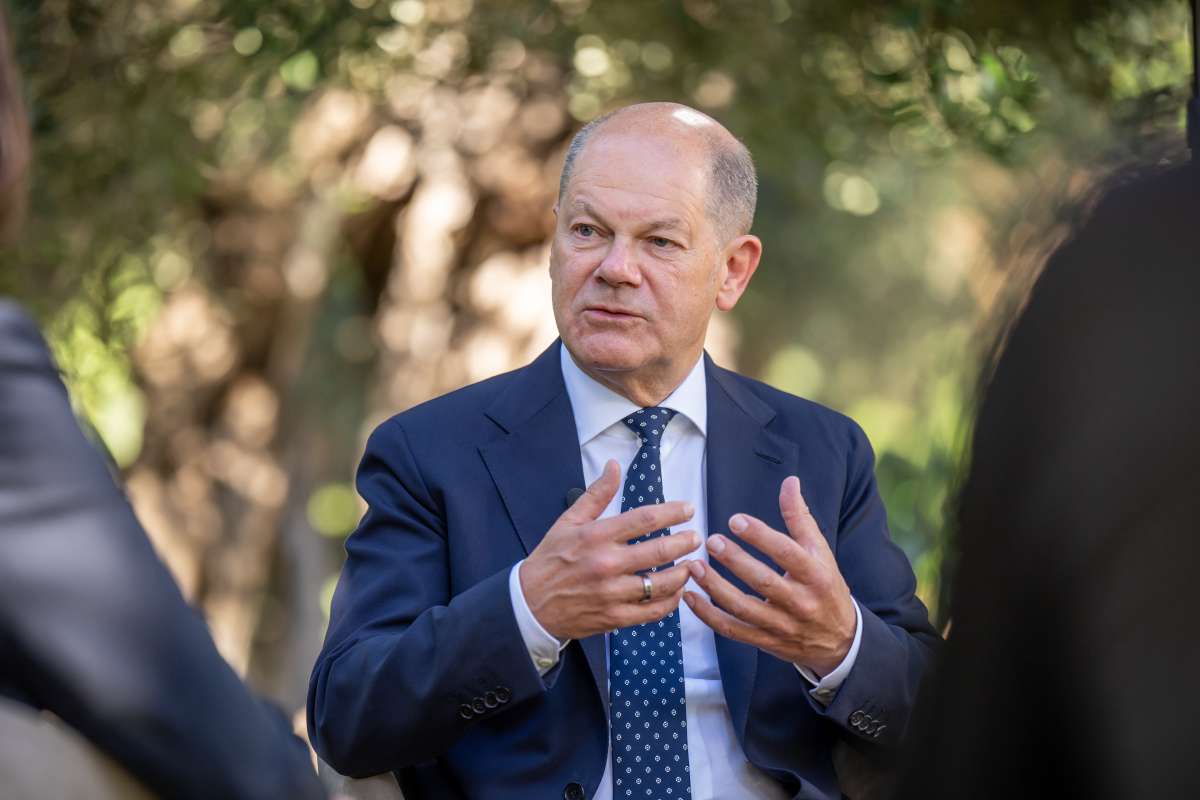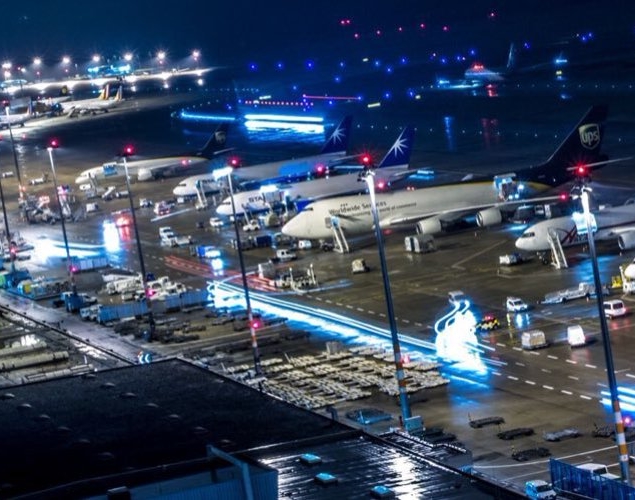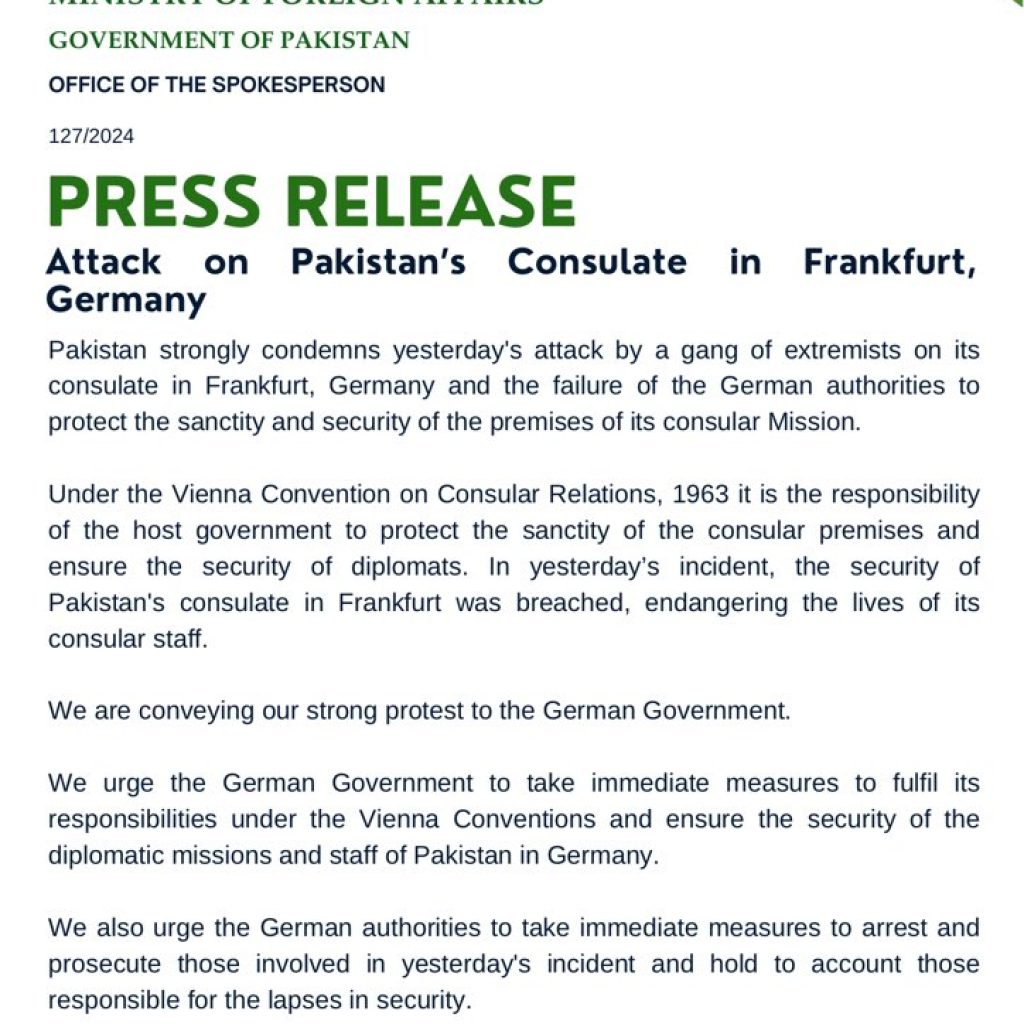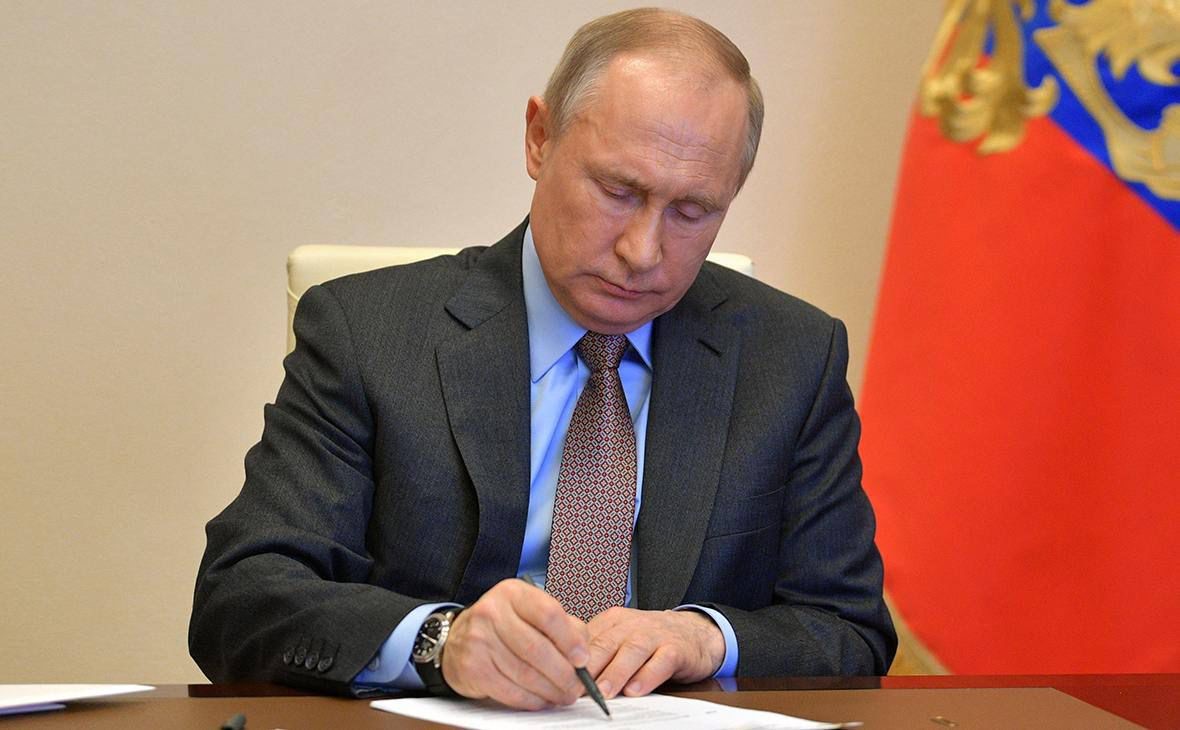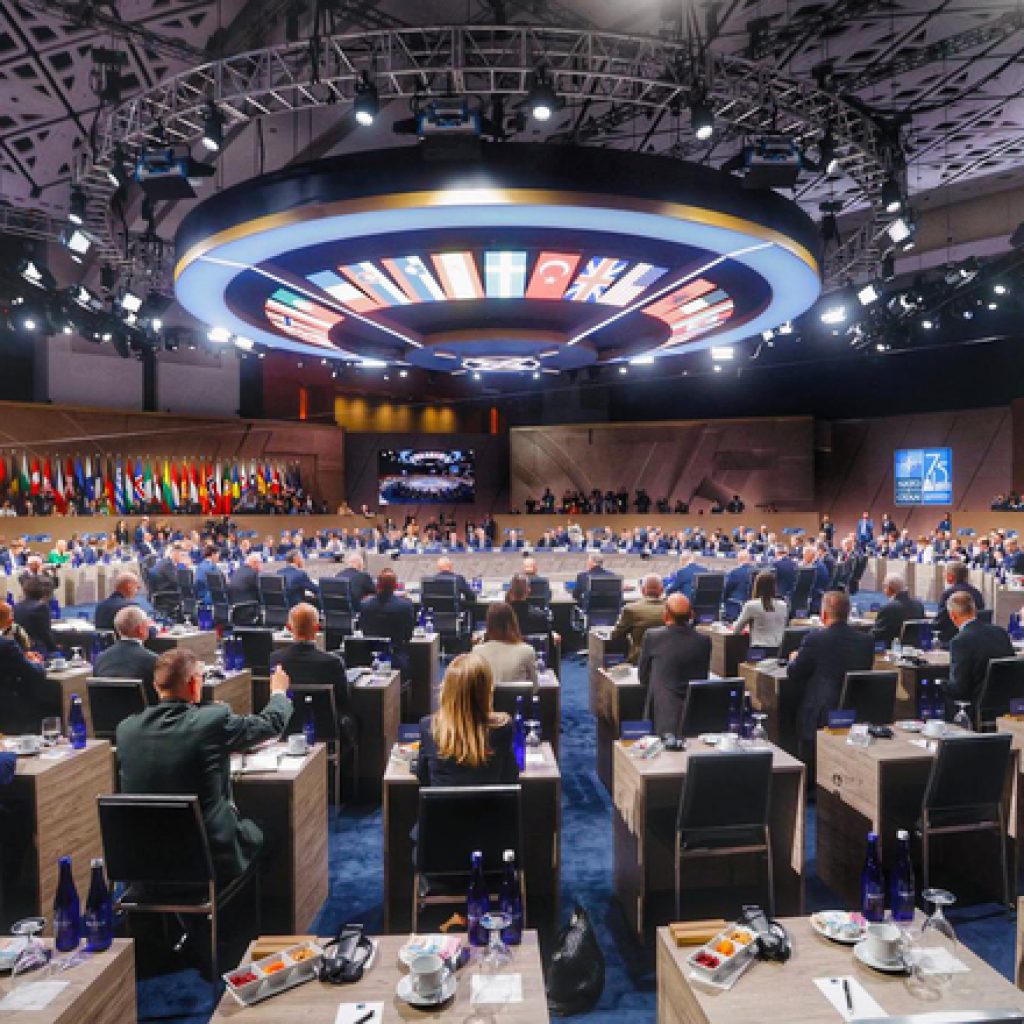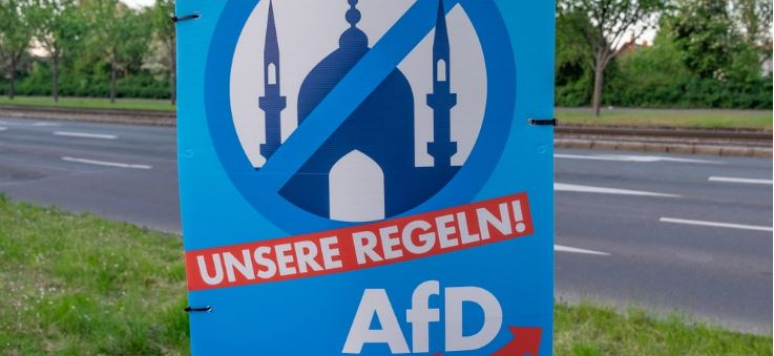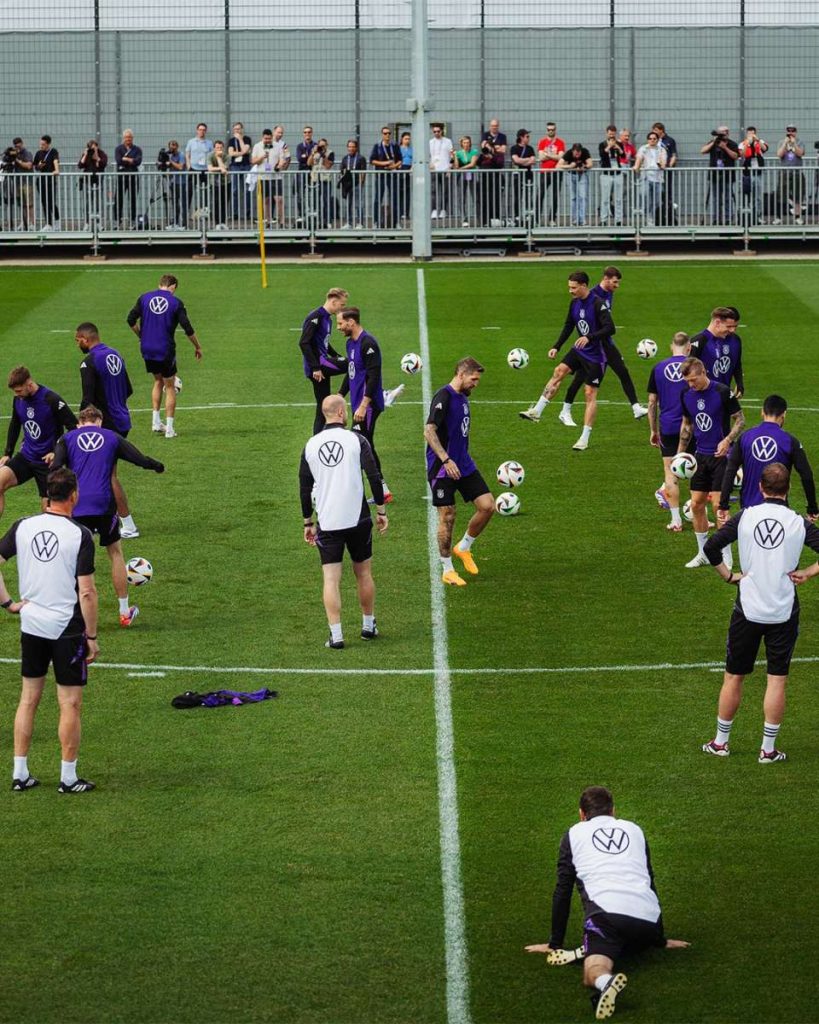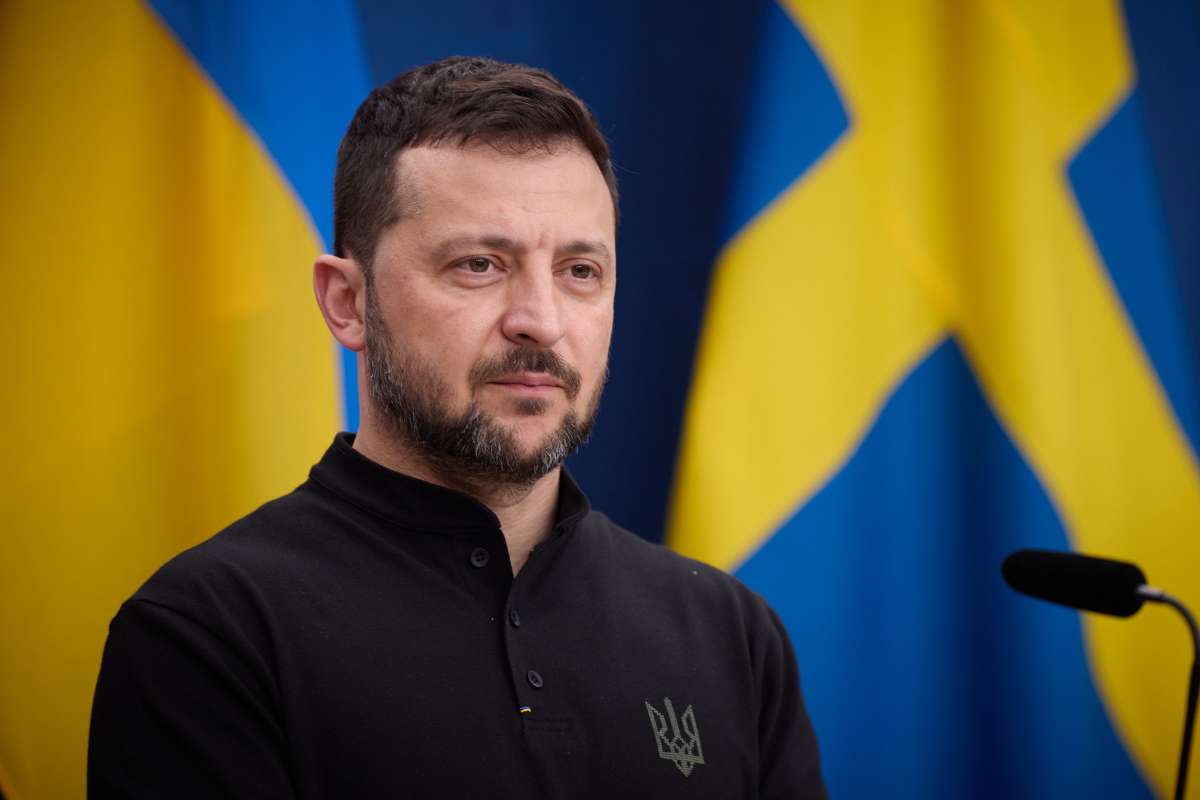A further seven officers were also slightly injured in the clashes near the Grugahalle hall. The perpetrators fled the scene…reports Asian Lite News
Two police officers have been hospitalised after clashes with hooded protesters outside the congress of Germany’s far-right AfD, as the party met weeks after its record European Union election result.
About 1,000 police were deployed in the western city of Essen on Saturday, where demonstration organisers said 50,000 protestors marched towards the congress. The police have not yet provided figures.
Police said two officers, a man and a woman, who had been escorting a politician were seriously injured when protesters kicked them in the head after they fell to the ground and that they had to be hospitalised.
Brandenburg an der Havel, Germany: view down a wide street of historic buildings in the old town to the statue of the medieval knight Roland von Brandenburg outside the red-brick old town hall, a tall late Gothic building with arched doorways and windows and a tall, square clock tower.
A further seven officers were also slightly injured in the clashes near the Grugahalle hall. The perpetrators fled the scene.
“Several disruptive violent actions occurred in the Rüttenscheid quarter. Demonstrators, some of them hooded, attacked security forces. Several arrests were made,” police in the North Rhine-Westphalia region, where Essen is located, said on X.
A top regional official had warned that “potentially violent far-left troublemakers” could be among the protesters.
“We are here and we will stay,” said the AfD co-president, Alice Weidel, opening the two-day congress – which started half an hour late due to street blockades – and drawing sustained applause.
“We have the right, like all political parties, to hold a congress.”
Both Weidel and her co-president, Tino Chrupalla, were re-elected to lead the party for another two years.
“We want to govern, first in the east [of Germany], then in the west, then at federal level,” Chrupalla told the about 600 delegates.
Chrupalla said party membership had grown by 60% to 46,881 members since January last year. Some 22,000 people had joined while 4,000 had left.
“Despite all the harassment you have to endure as a member of the AfD, this is an absolutely sensational figure,” Chrupalla told the convention.
In early June, the AfD had its best EU election result since the party’s creation in 2013, winning 16% of the vote to take second place.
It was behind the main conservative CDU-CSU opposition bloc but ahead of the Social Democrats (SPD) – the party of the chancellor, Olaf Scholz – which is in power at the head of a troubled three-party coalition.
Buoyed up by a surge in immigration and a weak performance by Europe’s top economy, the party hit as high as 22% in opinion polls in January.
However, its support faltered amid a welter of scandals that mainly implicated its top EU election candidate, Maximilian Krah.
“I believe that the party has learned a lot in recent months and will be very careful when we put forward leading candidates in the future,” Weidel, who is standing for re-election, told the Politico news outlet on Thursday.
Krah initially faced allegations of suspicious links to Russia and China. He then sparked widespread anger by telling an Italian newspaper that not every member of the Nazis’ notorious SS was “automatically a criminal”.
The comments prompted the AfD to be expelled from the far-right European parliament group Identity and Democracy (ID), in which France’s National Rally and Italy’s League had been its partners.
While the AfD has sought to shift the blame for its recent woes on to Krah, there were signs of problems before. The National Rally had already distanced itself from the AfD after reports emerged in January that the German party had discussed the expulsion of immigrants and “non-assimilated” citizens at a meeting with extremists.
The reports caused shock in Germany and triggered weeks of mass protests. After the EU polls, the AfD ejected Krah from the delegation it sends to Brussels, but the ID group does not seem ready to readmit the party, leaving it searching for new partners. The congress comes before three key elections in September in states that once formed part of communist East Germany, and where the AfD has been topping opinion polls.
ALSO READ-38 people killed in communal clashes in South Sudan

